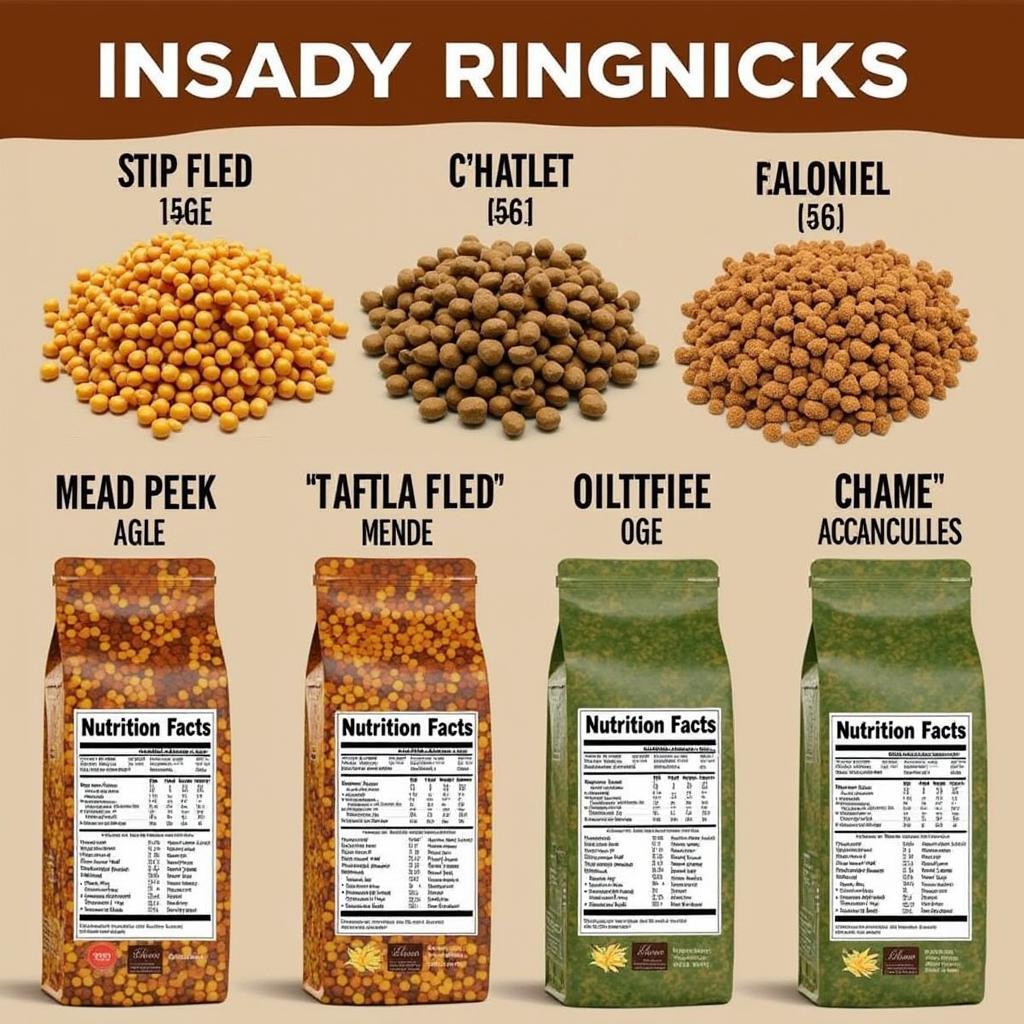Indian Ringneck Food is a crucial aspect of keeping these intelligent and beautiful birds healthy and happy. Providing a balanced and nutritious diet is essential for their overall well-being, vibrant plumage, and long lifespan. This comprehensive guide will delve into the specifics of what to feed your Indian ringneck, covering everything from essential nutrients to avoiding harmful foods.
Understanding Your Indian Ringneck’s Nutritional Needs
A healthy Indian ringneck diet should mimic what they would eat in the wild. This includes a variety of seeds, fruits, vegetables, and nuts. However, simply providing a seed-only diet is insufficient, as it lacks vital vitamins and minerals.
The Importance of a Balanced Diet
Just like humans, Indian ringnecks need a balanced diet to thrive. A deficiency in essential nutrients can lead to various health problems, including feather plucking, weakened immune systems, and even organ damage. A balanced diet should consist of:
- High-quality pellets: Pellets should make up about 60-70% of their diet. They offer a balanced blend of essential nutrients.
- Fresh fruits and vegetables: Offer a variety of colorful fruits and vegetables like apples, bananas, berries, carrots, and leafy greens. These provide essential vitamins and minerals.
- Healthy seeds: Seeds should be given in moderation as a treat, not as a primary food source. Choose a good quality seed mix specifically formulated for Indian ringnecks.
- Nuts: Nuts are a good source of healthy fats and protein. Offer almonds, walnuts, and pecans in small quantities.
What to Feed Your Indian Ringneck Parrot
Choosing the right food for your feathered friend can be overwhelming. This section will break down the best options for each food group.
Choosing the Right Pellets
 A variety of high-quality pellet brands suitable for Indian ringnecks.
A variety of high-quality pellet brands suitable for Indian ringnecks.
Pellets should be the foundation of your Indian ringneck’s diet. Look for pellets specifically formulated for parrots, and opt for those with minimal artificial colors and flavors.
Fresh Fruits and Vegetables for Your Bird
Variety is key when it comes to fruits and vegetables. Offer a rainbow of colors to ensure your bird gets a wide range of nutrients.
- Safe fruits: Apples, bananas, grapes (seedless), oranges, berries, mangoes, and melons.
- Safe vegetables: Carrots, broccoli, spinach, kale, sweet potatoes, and green beans.
Healthy Seeds and Nuts in Moderation
While seeds and nuts are enjoyable treats, they should be offered sparingly due to their high fat content.
- Suitable seeds: Sunflower seeds, safflower seeds, and canary seeds.
- Nutritious nuts: Almonds, walnuts, and pecans.
Foods to Avoid Feeding Your Indian Ringneck
Certain foods are toxic to Indian ringnecks and should be avoided at all costs.
Toxic Foods for Indian Ringnecks
- Avocado: Contains persin, which can be fatal to parrots.
- Chocolate: Contains theobromine, which is toxic to birds.
- Caffeine: Can cause heart problems and hyperactivity.
- Alcohol: Can damage the liver and nervous system.
- Onions and garlic: Can cause anemia.
Conclusion
Providing the right Indian ringneck food is essential for their health and happiness. By following this comprehensive guide, you can ensure your feathered friend receives the nutrients they need to thrive. Remember, a balanced diet of pellets, fresh fruits and vegetables, and occasional healthy seeds and nuts is the key to a long, healthy life for your Indian ringneck.
FAQ
- What is the best type of pellet for an Indian ringneck? – High-quality pellets specifically formulated for parrots are recommended.
- Can Indian ringnecks eat avocados? – No, avocados are toxic to Indian ringnecks and should be avoided.
- How much should I feed my Indian ringneck? – The amount will vary depending on the bird’s size and activity level, but generally, a good starting point is 1/4 to 1/2 cup of food per day.
- What are some signs of malnutrition in Indian ringnecks? – Signs of malnutrition can include feather plucking, lethargy, weight loss, and changes in droppings.
- Can Indian ringnecks eat table scraps? – While some table scraps are safe, it’s best to stick to a diet of parrot-specific foods to avoid accidental ingestion of harmful substances.
- What kind of fruits and vegetables can my Indian ringneck eat? – Safe options include apples, bananas, berries, carrots, broccoli, and leafy greens.
- How often should I change my Indian ringneck’s water? – Fresh water should be provided daily.
For further assistance, please contact us at Phone Number: 02437655121, Email: minacones@gmail.com Or visit us at: 3PGH+8R9, ĐT70A, thôn Trung, Bắc Từ Liêm, Hà Nội, Việt Nam. We have a 24/7 customer service team.